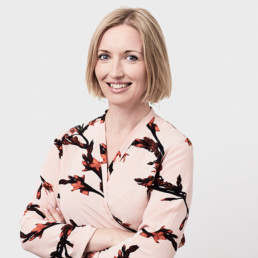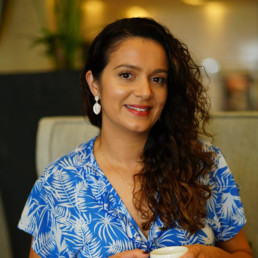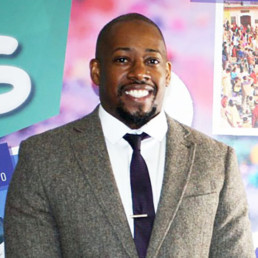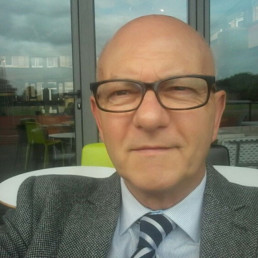Think Equal – Equality Education in Action

Written by Ben Mearhart
M.Ed. in Educational Leadership and in his 10 years as a senior leader developed practices and curricula which progressed teaching, learning, outcomes and personal development to ‘Outstanding’ levels.
Intent
As a joint-Headteacher of a forward-thinking primary school I was always on the look-out for initiatives which spoke to the heart of what I most value – the children’s actual experience and equipping them for leading rewarding lives. Think Equal’s social and emotional literacy programme achieves this and so much more.
I can’t think of anyone I know who wouldn’t benefit from enhanced social and emotional literacy. From engaging the compassion that it can grow, for ourselves and everyone around us. What do you do when you feel completely lost? When you feel you’ve made a terrible mistake? How do you support yourself or others when they feel this way? How do you treat people as they would like to be treated?
This, to my mind, is the true work of a curriculum, of a school; namely to cultivate an authentic social and emotional literacy which is steeled with a depth and breadth of real world understanding that together can make the world we leave for our children better than the one we inherited.
Implementation
You may of course learn such things through trial and error. Or, to be more certain of success, you can embrace social and emotional literacy as a golden thread of your learning and understanding as a student, of your pedagogy and support as a teacher and of your vision and impact as a leader. The mission, content and execution of Think Equal’s programme achieves this too. Bold claims I know, but treat those seeds of doubt to a quick glance at Think Equal’s Committee of Advisors and Academic Partners to see how this might be possible.
From Understanding the World to Personal, Social and Emotional Development – and all the fertile vertical and horizontal links between and beyond – Think Equal’s programme can instantly enhance your curriculum, pastoral care and ultimately the love and cohesion that unites your school community. And at a time when children’s minds – at their most plastic – can be so ripe to engage with what so many adults, myself included, can find paralysingly-awkward and difficult to negotiate in reality. What is true fairness? How are we different and how are we similar? How do I show you that I genuinely appreciate you as a human being? The programme largely enables these developments through consistently engaging and inspiring stories and activities.
Diverse narratives:
At age- and stage-appropriate levels, the children explore and embrace vital concepts like equality, emotion and race within the comparative safety of the experiences and choices of a beautiful range of characters.
Emotional intelligence in action:
Their discoveries are then reinforced with the help of the programme’s carefully scaffolded and inclusive activities so that they are ready to respond when reality calls.
Impact
And oh the difference! At its most essential, we found that our planning for Personal, Social and Emotional Development for the year was pretty much covered. Done.
More importantly…within weeks we saw elevated levels of kindness and consideration. We saw children often reserved and tentative now emboldened and asserting their values. We saw children who knew themselves and their friends with deeper understanding and confidence, who had normalised the range of emotions we experience but not the negative actions they can drive.
Children who, self-confident and upright, were happier, more engaged, independent and much more likely to approach conflict with courage and solutions(!). The positivity rippled through our staff and to home too. These days there is rightly much talk of a mental health and well-being crisis (pre- and post-Covid 19). In times of joy, sorrow and everything in between I don’t think we can expect more than to ride those waves to the best of our ability. Pursuing the Think Equal programme enhances that ability and not as a reactive solution – a bolt on – but as a pro-active and living, breathing and growing reality.
The Room Where It Happens - Promoting Diversity through Fiction in the Sixth Form Library

Written by Olivia Edmonds
Learning Resources Manager (with responsibility for the Library) at FE Level in Birmingham. Former Secondary English teacher of 10 years.
On my first day as a Learning Resources Manager at a Sixth Form College in the Midlands, the then Principal said to me, “Olivia, our students don’t read – and they need to. You need to get our students to read.” This was a challenge I was more than happy to accept, but looking at the wider context of the College, this turned out to be a bigger battle than I first expected. The College is situated in one of the most deprived areas in the country and serves a predominantly ethnic minority community, where many students use English as a Second Language. With limited opportunities to develop their cultural capital and without access to community Libraries (due to Government cuts), it made me realise the importance of the Library I was now in charge of, as well as the impact that it could have on the lives of its students.
My first focus was to make our stock as relevant and engaging for our students as possible. This also presented its own unique challenges. The stock I inherited from the previous Librarian was completely out of date and based on my experience at my first school (which had a similar cultural and religious demographic), not fit for purpose. To me, the importance of representation in books is key to engaging young people in reading, so when the Library shelves contained the works of authors such as Geoffrey Archer and Barbara Cartland, it was easy to see why the Library usage was so low. Couple that with the severe lack of books representing any of the protected characteristics of the Equality Act 2010, and it was clear to see the areas that needed addressing. I wanted the Library space to be a supportive, inclusive and engaging learning environment. A place in which our students could, in a safe space, learn about and ask questions about things they may have never discussed before and for this to happen, major changes were needed.
Working alongside the College’s Equality and Diversity co-ordinator, as well as a focus group of students and other staff, we worked together to assess what of the current stock was fit for purpose, what stock was unfit for purpose, and what stock could be fit for purpose if appropriately updated. It was the findings of this exercise that I was then able to take to my Line Manager and then onto SLT, who approved the decision for me to fully replace all of our fiction/Reading for Pleasure books with more appropriate, relevant, and engaging stock. This up-front investment in stock has meant that any additional or recently published stock has only needed to be purchased in small amounts to reflect the changing times in which we live.
When choosing new stock, I wanted to ensure that the variety of Own Voices stories was as wide as possible. I felt it was not only important for students to have access to stories relating to issues they have not come across before – such as different religions, sexualities, and cultures – as it was to have access to stories where they have some familiarity. Overall, my main aim in choosing new stock was for our students to be able to see themselves in the texts we have. With continued support from our students, as well as guidance from staff at Peters Books, Browns Books for Schools and our local Waterstones, we were able to create a collection that provided a solid base for us to build on as years passed. This collection has now allowed us to build our students’ engagement with a range of topics, including national and international events and cultural movements (thus improving their cultural capital), and has resulted in increased student loans, in depth liaison with teachers to provide further links between fiction and the Curriculum, and hosting a series of speaker events, ranging from authors to representatives from different religious backgrounds.
I feel that there will never be an end point when it comes to diversifying a Library collection, especially when it comes to Fiction. We live in an ever-changing society, where every day there are new issues raised and new opinions formed. Furthermore, the access to on the spot news being almost instantaneous means we, as Librarians, need to be aware of what our students are consuming and facing. If we can truly allow them to learn and be educated about a wide range of diverse matters in a safe environment, such as our libraries, then we have more chance of our young people being the true change that our world really needs.
The Power of Multiple Perspectives

Written by Paulina Tervo
Co-Founder and Co-CEO at Lyfta; an immersive learning platform for educators.Her background is in documentary filmmaking and web production.
I’m holding a heavy camera in my arms, which are shaking from the sheer weight. It’s 35 degrees; hot, humid and I’m standing in the middle of the biggest slum in Dhaka, Bangladesh, filming a UK A-list celebrity who is crying and talking to the camera. We have just visited several homes in the slum, where we have met young mothers, who are still children themselves, who live in abject poverty and whose children are malnourished. My brief for the day has been to make the A-list celebrity cry in front of the camera, because that’s what will make people donate to the charity that I am doing the work for. I start crying myself, because of the absolutely devastating stories of hopelessness that we are telling, and because I have been told by the local staff that the families we filmed are not beneficiaries of their aid, and therefore will not be helped.
What this narrative was doing was problematic for many reasons. Not least because it reinforced the white saviour narrative, portrayed the poor as a helpless one-dimensional group who are only going to be saved by our charity. It also showed only one side of the story. What we didn’t tell was how the young mother might have been part of a women entrepreneur’s group, saving together to launch a business, or how she is a resilient and resourceful person. We didn’t humanise her, we victimised her, objectified her even.
I felt disgusted and embarrassed for being there. It was the first time I had ever taken an assignment like this, and it was absolutely going to be my last. It was clear to me that what we were doing would not bring about sustainable change. I realised that I wanted to tell stories that were empowering, and even if they had tragedy or difficulties in them, they would humanise and have hope.
A very different story
Fast forward 5 years, I am filming another young mother, this time in Helsinki, Finland. This is where I come from.
Habiba was a child when she came to Finland in the early nineties as a refugee from Somalia. To give you some background, in 2018 over 50% of Somalis in Finland were unemployed, and when it comes to women, that figure was even higher. Many Somali women become nurses or work in other caring professions. When Habiba told me that as a teenager she had been told by a school counsellor that she would be best off becoming a nurse, as that’s what most other Somali women do, she decided that wasn’t going to be her route. Her interest was in citizen activism and politics.
Habiba always knew she wanted her own career while also fulfilling her duty as a mum. By her mid-twenties, she was the proud mother of 7 children when the relationship with her husband broke down. Committed to her aims towards social justice and advocacy for others, she chose to become a city councillor and started to work for her community, to help young people who faced institutional racism which put them at risk of marginalisation. It hasn’t been easy for Habiba to do what she is doing, she faces constant hate speech and racial abuse.
The story we ended up telling about Habiba, like the other stories on the Lyfta platform, is emotionally powerful, yet hopeful, inspiring and empowering. Habiba is an incredibly resilient and positive person, reflective and committed and provides a powerful role model for us all. She makes us see that despite adversities, we can still follow our dreams.
Habiba’s story has now been seen by thousands of children and teachers in the UK and Finland. For many people, she is an incredible role model, and for others, meeting her has given them a window into someone’s life, whom they might otherwise never have met. They would have heard a story that showed them a new perspective.
Habiba’s story is one of many human stories featured in Lyfta’s learning environments called storyworlds. At Lyfta our mission is to share beautiful human stories from around the world to better understand ourselves, each other and our future – as individuals, as communities and as an entire planet.
Storytellers and media outlets have a big responsibility as to how we tell stories, because stories shape our world and shape perspectives and attitudes. So it really matters how they are told. The world is nuanced, complex and beautiful and there are a million ways of telling someone’s story. At Lyfta, we choose to tell stories that humanise people.
What is Lyfta?
Lyfta is an award-winning teaching platform made up of interactive 360° spaces and soundscapes of real homes, workplaces and environments from around the world. Students are invited to explore, unlock rich media content, and get to know real people through powerful and inspiring short films.
The resources are ideal for teaching a range of subjects, skills and values and the UN SDGs. The ready-made lesson and assembly plans cover a range of vital themes such as sustainability, wellbeing, human diversity and compassion, and are ideal for nurturing skills and values such as empathy, resilience, and critical thinking.
Lyfta offers free training and trial access – find out more at www.lyfta.com/training
How Can We Create a Curriculum that is Inclusive of Queer Theory?

Written by George Hayward
(he/him), English Teacher in East London, LGBTQ+ Advocate.
During my time as a student, I often felt a lack of inclusivity in the curriculum I was studying. Reading great classics and beloved page turners such as To Kill A Mockingbird and Lord of the Flies, I found myself wondering why none of these stories were about people like me. When I reached university, I discovered Queer Theory and I was mindblown. Not only were there stories about people like me, but there were academics studying and rereading the texts I grew up with and held dear through a lens of queer understanding. One such text was Robert Louis Stevenson’s The Strange Case of Dr Jekyll and Mr Hyde. I had the opportunity to study these readings during my time at university, so when the opportunity arose to deliver a lecture on it at my school in East London, I was overjoyed. While planning the session, I drew upon the essays and research I had from my undergraduate degree, revisiting the work of prominent theorists such as Elaine Showalter, Judith Butler, Eve Sedgwick and Michel Focault. The most extensive in relation to Jekyll and Hyde being Showalter’s paper Dr Jekyll’s closet.
Queer Theory aims in principle to challenge heteronormativity: the assumption that heterosexuality is the default state of being. It digs into the structures of understanding within art, literature and society and dismantles them. This is an important area of theory as it provides visibility. It allows students of all backgrounds and identities to see themselves in the curriculum they study. It shows them that they are seen and that different people exist. There is a lot of talk about ‘acceptance’ of LGBTQ+ peoples and while acceptance is a great first step, what we need is celebration and understanding. The teaching of Queer Theory and narratives provides this understanding and promotes the celebration of all our students and their identities. It promotes a culture of inclusive allyship and support, where students, staff and their families from all walks of life can lift each other up and be their true authentic selves. All our students deserve to feel they are lifted up in a space where they are safe and important.
The session was received well by staff and students alike. I was able to offer the session twice, firstly to the staff of the English department and secondly to our year 10 students. Staff were engaged with the topic and felt that Queer Theory provides another framework of understanding to utilise in our classrooms. It provides another tool in our analysis toolbox to dig deep into language and encourage our students to be critical thinkers. Similarly, students in my year 10 class that attended the session found the subject refreshing and interesting. I found that while Queer Theory and readings may seem oblique to some, students and staff alike were able to engage with the topic and take away some food for thought. The opportunity to deliver the session was incredibly fulfilling for me on a personal level and it is my true belief that the teaching of these theoretical frameworks is of benefit to every student. I believe it is crucial to foster this culture of inclusivity and celebration for all our learners and I hope that Queer Theory will be a valuable step on this journey.
Bringing a Diverse Curriculum to Life Through Human Stories

Written by Rahul Karavadra
Engagement manager at Lyfta, and has been working in the education sector for a number of years. His background is in Philosophy with a Masters degree in Global Citizenship, Identities and Human Rights.
We recently had the pleasure of taking part in the Big Virtual Conversation III as part of the series of #DiverseEd events organised by Diverse Educators, organised by the brilliant duo, Hannah Wilson and Bennie Kara. The session was a chance for us to hear from a range of amazing speakers in the diverse education sphere, including from our own Rahul Karavadra, Engagement Manager at Lyfta. The key themes of Rahul’s session, about bringing a diverse curriculum to life through human stories, are outlined in this blog.
Growing up, I was always on the edge of my seat when family members told stories of their lives in Uganda and Kenya, and what it was like living in the 70s and 80s as first generation migrants. Hearing their stories allowed me to see them as multifaceted individuals, with passions and interests of which I was previously unaware.
As I grew up, this inquisitiveness developed into an urge to find out more about people from other communities and cultures. This eventually led me to do a masters degree in Global Citizenship, Identities and Human Rights, specialising in diaspora identity construction in relation to host nation experiences and long-distance nationalism. In essence, I was, and still am, trying to understand how my human story is shaped, influenced and connected to the stories of others.
And as a species, we have always been drawn to stories – from paintings on cave walls to the blockbusters we see on our screens.
If we look at western Africa, we can see how important human stories were to society through the ‘griot’; the repositories of oral traditions and history. People would tell their stories to the griot and it was their responsibility to remember them, and recount them to others, passing down lessons that could be retold and learnt from. It was said that when a griot passed away, it was like a library had been burnt down – that’s how important they were.
In this age of postmodern globalism, where identities are negotiated and stretched across permeable borders and interconnected histories, it’s important that a diverse range of stories are told.
It is through the acquiring and exchange of cultural capital that the division between self and the ‘other’ can be dissolved. We are then able to build bridges and lay the foundations of understanding and empathy, as well as an awareness of connectivity, both on a micro and a macro level – ‘we are each others environment’.
As educators, we find ourselves in a similar role to that of the griot – but with ever more relevance. We are responsible for sharing human stories and perspectives from all across the world, and these stories have become more urgent for us to tell. In the past few years alone, we have seen a rise in neo-nationalism, xenophobia and global temperatures, not to mention the physical and mental scarring of Brexit, the death of George Floyd and more recently the storming of the Capitol in the USA.
We must remember to harness the power of humanity for the common good, and human stories allow us to do just this.
At Lyfta, we capture human stories in the form of short documentaries. These are presented through immersive and interactive 360° spaces where teachers and students can experience new perspectives and build vital skills and values. At a time when school trips are on pause, and the ability to travel and have close human interactions are severely restricted, Lyfta invites students to explore the world from the comfort of school or home, and meet the likes of Qwensley in the Caribbean, Kootyin in Hong Kong or Enaney in Ethiopia.
Teaching and learning through human stories can be a useful and powerful way to ensure that students have experiences of the world as part of their entitlement to cultural capital. Lyfta can be used as a tool to develop an understanding of the protected characteristics, and show how equality and diversity can be promoted and reflected within our schools.
We have seen that teaching through immersive human stories can bring a depth, breadth and meaning to complex concepts for children, moving learning from information to knowledge.
Our vision at Lyfta is that by the time a child completes their education, they will have visited every country in the world and will have met at least one person from each of these countries; experienced different cultures, different languages, different jobs, roles and perspectives. They will have seen, and formed a connection with hundreds of positive human stories that model resilience, problem-solving, teamwork, and many other critical skills, values and competencies. They will be able to understand for themselves how interconnected and interdependent we are, and will have gained a deep awareness of their power and role in the world.
You can watch the Diverse Curriculum panel session in full here.
If you would like to explore using the human stories on the Lyfta platform as part of your diverse curriculum, please sign up to our training here. State schools in the UK can enjoy free training and access to the full platform and resources for 12 weeks of term time.
Ethnography and its relevance within the school environment

Written by Cas Germain
Primary School Teacher living and teaching in the UAE. She has a Masters in Gender Studies in the Middle East, is a qualified SENCo and a certified Life Coach.
Before we begin I wish to break down the terminologies I’ll be using within this article to ensure we are all speaking and understanding the same language.
Ethnography:
“The scientific description of peoples and cultures with their customs, habits, and mutual differences.” *
Bias:
“Biases may be held by an individual, group, or institution and can have negative or positive consequences.” **
Inclusive practice:
“Inclusive practice is a teaching approach that recognises the differences between students and uses this to ensure that all students can access educational content and participate fully in their learning.” ***
As educators we all strive to ensure all of our children are getting the best out of the curriculum, however, more often than not there are some crucial indicators and factors which are overlooked.
We humans tend to gravitate towards what’s familiar to us. For some people it can be having a cup of tea when travelling abroad, or gravitating towards people who like the same hobbies as you. It’s part of our human DNA, which is to create meaningful connections, we’re hardwired for it.
When in the classroom and creating a fully inclusive environment for learning, I wish to provide some useful strategies on the importance of checking our bias to ensure all children are represented.
Why is this important?
If you’re teacher training took place in the British curriculum, it’s part of our Teaching Standards: Personal and Professional Conduct. “Showing tolerance of and respect for the rights of others.” ****
When students are taught about one another’s cultures and experiences, it creates a world of understanding and positive relationships.
Students become more open minded and respectful of their peers’ values and identities, creating the ability to connect and build rapport later on, not only in the academic careers but within their chosen professions.
Confidence is created within the school environment and therefore enhancing the learning experience for all, allowing for less likeliness of prejudice to occur later on in life, as teaching with ethnography in mind, provides a safe space to express oneself and celebrates one’s identity.
Children of all nationalities, backgrounds feel a sense of belonging, and are less likely to be influenced by organisations that entice vulnerable ethnic groups.
What does Ethnography look like within the school environment?
As educators we can use simple approaches to ensure pupils feel included, supported and valued.
The basis of all human connection is where we feel, seen, heard, valued and respected. This can be done across the board regardless of race, ethnicity or gender.
Examples can be:
- Creating rapport: Greeting and addressing pupils and colleagues by their names. “A person’s name is to him or her the sweetest and most important sound in any language.” (D. Carnegie) Asking them how their weekend was, or what they enjoy? By speaking about non-school related topics and leaning into the student’s world, creates a sense of trust and positive relationships.
- Representing races and genders on lesson plans: Look at the demographic and ethnography of children in your classroom. For example, if you have a large Caribbean demographic, include pictures and examples of successful people from that area of the world within lesson plans, during your weekly planning.
- Leadership and hiring: When hiring candidates, do you tend to hire male leaders and female teachers? Think about how this reflects and seems from a child’s perspective. If young girls only see men as leading and women as teaching, does this represent their opportunities of growth and career progression later on? Do you have a variety of genders and nationalities within your workforce, that reflect the children in your school?
- Share local and global leaders from all areas of their world and their stories. Using the demographics of students in your class or school, use these example as assembly topics or include them within your slides.
- Celebrate cultural days: E.g Diwali, Eid, Christmas. Choose children to talk about their culture. For KS2 and secondary students, can they create an assembly for the year group/school? For primary children, allow them to tell their class about their culture and how they celebrate their festivals. Allow children to ask questions, and invite parents in (via Zoom) for a Q & A with the children.
The best thing we can do as educators, is make our students feel welcome, seen, heard and valued. This is the basis of all human relationships.
References:
- (Oxford Languages,2021)
- (https://diversity.ucsf.edu/resources/unconscious-bias,2021)
- https://www.highspeedtraining.co.uk/
- https://assets.publishing.service.gov.uk/government/uploads/system/uploads/attachment_data/file/665522/Teachers_standard_information.pdf
Breaking the Cycle Anti-Racist Plan: Term 1

Written by Dwain Brandy
Outstanding teacher, behaviour leader, and Race Equality ambassador. He is on a leadership journey towards becoming a Headteacher.
In 2020, I have had the opportunity to lead an Anti-Racist approach within Oasis Community Learning. The aim was to tackle institutionalised racism in and beyond our schools. Inspired by perceptions of learners, we have introduced a culturally inclusive diet that integrates multiple perspectives to topics within the National Curriculum to make it more inclusive for Global Majority learners and to ensure that whiteness is not the norm by which everything is measured. This will drive the narrative of decolonising the structures in education, focusing on Curriculum Reviews, Staff Training, CPD, Student Education, Community, and Leadership and Management.
With a wide range of different cultural backgrounds and nationalities in England, it is essential for the curriculum to reflect global society and to relate to the increasing global audience. My ethos is to implement a cultural approach that views schools through the perspective of its learners, where the intention is to challenge and change attitudes of society to accommodate an inclusive multicultural community within all schools across the UK.
It has been a challenging start to the school year, due to Covid-19 and limited time capacity to facilitate the project, where the majority of the work was completed outside of the school hours. Despite this, I’m proud to report that significant milestones have been achieved in the first term.
Curriculum Review and Adaptation
To implement an Anti-Racist, anti-oppressive and culturally inclusive diet that integrates multiple perspectives to topics within the National Curriculum to make it more inclusive for Global Majority students
- Audit the cultural diversity of each POS – are each POS representative of different cultures across the five years of study.
- Audit the teaching and learning through an Anti-racist leans using the NEU anti-racist framework
- List of industry professionals , coaches and mentors that could be used for interventions via the list the race trust (launch term 2)
- Initial meeting with Black and Global History trail, in conjunction with the UOM and the Heritage fund. UOM will find local trail blazers for core subjects (Maths, English and Science) with the aim of including these within the lessons. https://www.heritagefund.org.uk/hub/107833/news?page=9
- Review the PSHE curriculum based on the feedback from students
- Anti-Racist training in conjunction with Kids of Colour and resources provided by theracetrust.org and MUSA to provide a framework lessons and a framework for the lessons
- Opportunity to discuss issue relating to race, politics, culture and identity with teaching staff chairing the conversations , addressing any misconceptions
- Diversity day, launching an racist agenda at oasis academy media city (rolled over to term 2)
- Ensure that all cultural events are included in the calendar- for example refugee week, Diwali, Eid, Chinese new year, Wind rush day . Robust plan for Black History Month. Use the OCL equality and diversity calendar as a framework for upcoming events.
- Website, School Newsletters, Photos around the academy, class rooms,
Staff Training and CPD
Staff to become diversity champions, becoming experienced in an anti-racist and anti-oppressive pedagogy
- Build in education of diversity into the yearly CPD programme.
- Deliver a session on being diversity champions as staff
- Anti-Racist Working party group (meeting termly)
- Kids of colour Anti-racist training (Booked in for half term 2)
- MUSA training introduction with all staff (Booked in for half term 2)
- Breaking the cycle anti-racist training launch DBR
Student Education
Targeted interventions for Black and Global majority students
Review the area of concern (e.g. Careers / subject area) that needs intervention.
- Subject specific interventions
- Weekly / Fortnightly 1:1 tutorials with the university of Manchester and Aim Higher for Black students interested in Optometry, Dentistry and Physics. Following students to be allocated a community mentor to hold them accountable (next term)
- Regular meetings with students that have been involved in racist attacks on other students. Far right extremism / anti-racism interventions Small little steps anti-racist training https://smallstepsconsultants.com/
- Follow up Interventions focused on the impact of Hate Crime via The race Trust / Kids of colour
- Student ambassadors. Focused on an anti-racist approach and community cohesion via the race Trust (Next term)
- Student voice (Half Termly Termly)
Leadership and Management
Critically Review existing school policy through the lens of Black and Global Majority Learners
- Racist incidents is 3 days in Internal exclusion that could lead to a Fixed Term Exclusion
- Return to school meeting with parents and SLT
- Incident is referred to the police, social services
- Repeat offenders will be Fixed Term Excluded
- MUSA anti-racist course 6 week course to be completed
- Amended Anti-Racist section in the home school agreement for parents and staff to sign
Community: Term 1
- Weekly meetings with the community strategy response team
- Collaborations with local anti-racist organisations (e.g., Anne Frank Trust, The Race Trust, Kids of Colour)
- Weekly meetings with the community strategy response team (Neighbourhood development officers, Salford Youth Service, Local Agencies focused on online safety , Crime and Anti-Social Behaviour Update from the local PCSO’s)
Next Steps
- Review existing performance management content and include a target aligned with becoming an anti-racist school
- Audit of racial indents sanctions and restorative interventions
- Name Blind recruitment process when appointing of new staff
- Positive discrimination focused on the recruitment of Good/ outstanding BGM practitioners
- BGM representation on the OCL equivalent of the Board of governors
- Clear recruitment to leadership progression for BGM teachers
How to Talk with Children and Young People about Race and Racism

Written by Sarah Soyei
Head of Strategy and Development, EqualiTeach
The murder of George Floyd at the hands of a white police officer and the subsequent protests against systemic racism and oppression will be impacting heavily on children in the UK.
Children will be encountering information via the media, family and friends. There can be a temptation to try to shield them from complex and difficult issues, to turn off the television and shut down conversations. However, even young children will have often absorbed more than adults realise, and older children will be encountering disturbing images and text on social media. All need space to interrogate their thoughts and feelings.
Some tips for talking about race equality and racism are outlined below:
Start from a Young Age
There can be a belief that young people don’t notice difference and that speaking about diversity and race will introduce issues where they had not previously existed. However, in reality, small babies are aware of differences in skin colour and children as young as three start to use racial cues as a basis of categorising people. Talking with young children about diversity will help them to value differences and reject prejudice and develop positive attitudes about themselves and people unlike themselves.
There are lots of lovely board books which introduce the ideas of celebrating difference such as: Everywhere Babies by Susan Meyers, which has beautiful illustrations by Marla Frazee showing babies doing all the things they do best- sleeping, laughing, playing, crawling, and which represents a wide array of different families.
Ensuring that there is a diverse representation of people in books, toys and games, such as dolls, jigsaws and dressing up items introduces children to diversity and creates opportunities for conversation.
Promoting Race Equality is not about being Colour-blind.
Someone’s skin colour is a signifier of their history and a key part of their identity. As Kerry Washington says:
“I’m not interested in living in a world where my race is not a part of who I am. I am interested in living in a world where our races, no matter what they are, don’t define our trajectory in life.”
If adults avoid speaking about difference, then children can erroneously grow up believing that it is rude to mention someone’s skin colour.
Don’t Silence Children’s Questions
Don’t give a negative message by trying to silence children and not answering their questions. Young children are naturally curious about the world and differences between people. If children are told to be quiet and the subject is not something to be talked about, they will draw their own conclusions that being different is somehow embarrassing or shameful. Use questions as an insight into the child’s world and an opportunity to open up conversations.
Talk about Similarities and Differences
Allow children the opportunity to discuss differences between people: skin colours, hair textures, facial features, temperaments and abilities, family structures and relationships, but also focus on similarities. Across ethnicities, countries and cultures there are things we all share: our common humanity, our concern for others, our need to be loved, our need to eat and sleep and play and have a home and clothes – all of which can be different and valued in their different forms. Avoid stereotypes and generalisations; remember there is huge diversity within every ethnicity, country and culture.
Start from Where Young People are
Young people need the opportunity to explore their emotions and learn coping mechanisms. Providing a safe environment to help children talk about issues and understand what is going on will help them navigate any confusion, distress and worries they may be experiencing.
Ask children open questions about what they know, what they’ve seen and what questions they have. This allows you to pitch the conversation at the right level, avoiding over-complicated explanations, which could increase worry and confusion, or pitching it too low and leaving out important issues because you think that children aren’t aware of them.
Avoid exacerbating fears and upset by using graphic images or images of people in distress. If children are focussed on a specific incident or event, broaden the conversation, ask them questions such as ’How do you think the people were feeling?’ and ‘What do you do when you think something is unfair?’. Help them to understand the wider societal context of what is happening to allow them to build empathy and understanding.
Challenge Stereotypes and Prejudice
Sometimes children may say something which is biased or prejudiced. Use open non-judgemental questions, such as ‘What do you mean by that?’ or ‘What makes you say that?’ to find out what they meant by the statement and allow them the opportunity to question what their opinions are based upon. Provide them with an alternative viewpoint and help them to recognise stereotypes and explore the difference between neutral and emotive language, fact and opinion.
Never leave racism unchallenged, use incidents as an opportunity to educate.
Promote Positive Action
Young people can feel helpless in the face of big world issues such as racism, but there is lots that they can do to create positive change, including raising or donating money, challenging racism and raising awareness amongst their peers, sharing content on social media, creating films and blogs, and writing to newspapers and MPs. Young people have a voice and should be empowered to use it.
You Don’t Need to Have all the Answers
Take the time to read and educate yourself as much as possible, but there will always be times where you don’t know the answer to a question. Admitting that you are unsure is a much more positive approach than imparting information which is inaccurate. You can research answers together, which not only ensures that children are receiving accurate information but also teaches them the value of research and how to research for information in a safe and effective way.
A selection of books which provide a platform for discussions on racism are outlined below.
My World, Your World by Melanie Walsh
Age 1-3
A brightly coloured book celebrating the similarities and differences between people.
What’s the Difference? By Doyin Richards
Age 3-5
A book about seeing and celebrating difference and recognising that the most important things are what we can do together as friends, families and communities.
A is for Activist by Innosanto Nagara
Age 3-7
A colourful ABC board-book full of rhymes, and pictures with a cat to find on every page, this book helps to raise children to be conscious of activism, environmental justice, civil rights, LGBTQ rights and more!
Racism and Intolerance by Louise Spilsbury and Hanane Kai
Age 5-8
A beautiful picture book that explores what racism and intolerance are and how they affect children all over the world
Viola Desmond Won’t Be Budged by Jody Nyasha Warner and Richard Rudnicki
Age 5-9
The true story of Viola Desmond who refused to move from her seat in a movie theatre in Nova Scotia in 1946. She was arrested, charged and fined, but continued to fight for equality, inspiring others and raising awareness of the injustice of racial segregation. An important story written and illustrated for young people.
What is Race? Who are Racists? Why Does Skin Colour Matter? And Other Big Questions by Claire Heuchen and Nikesh Shukla
Age 10-13
An accessible exploration of the history of race and society, being. It looks at belonging and identity, the damaging effects of stereotyping, the benefits of positive representation and how to protect against and stop racist behaviour.
A Change is Gonna Come by Various Authors
Age 13+
This book is a collective of stories and poetry from Black, Asian and other Minority Ethnic authors, all on the theme of change. The stories are as diverse as their authors!
The Hate U Give by Angie Thomas
Age 13+
Inspired by the Black Lives Matter movement, this is a powerful and gripping story of a teenage girl’s struggle for justice.
Noughts and Crosses by Malorie Blackman
Age 13+
A series of books exploring race, superiority and love through a world where black people (Crosses) have superiority over white people (Noughts).
“I will not be erased” by gal-dem
Age 13+
gal-dem is an award-winning online and print magazine written by women and non-binary people of colour. “I will not be erased” is a collection of essays from gal-dem writers, using raw material from their teenage years, to share stories of growing up as people of colour.
These books specifically focus on race equality and racism. However, it is vital that this is not the only form in which young people encounter black people in literature. Make sure that children and young people have access to a wide array of literature which includes black histories and stories. Some top tips for building a diverse and inclusive bookshelf:
- Consider the authors: do you have books by a range of authors with different characteristics, backgrounds and experiences?
- Consider the protagonists: are the main characters in your books all white? Do they fulfil stereotypical roles?
- Consider the story: will this story bring something new and different to the child reading it? Will it share a new experience, teach something about a different culture or country, or alternatively will it help to celebrate an important part of their own identity? A great bookshelf will offer all of these!
Some great independent book sellers and online services who stock and recommend a diverse range of books:
Knights Of: a bookshop and movement to support diverse authors
Jacaranda Books: an independent publisher ‘with a dedication to creating space on the bookshelf for diverse ideas and writers.’
Letterbox Library: A children’s booksellers celebrating equality and diversity.
Tamarind Books: Now part of Puffin books, Tamarind has championed diversity in children’s publishing since 1987, helping to make sure children of all cultures and ethnicities have the chance to see themselves in stories and books.
The Willesden Bookshop: Supplies multicultural books for schools and libraries.
EqualiTeach delivers workshops for young people and adult training on all issues of equality including on race and racism. Find out more here or get in touch.
Adapted and Inclusive sport. It’s not just about disability

Written by Steve Morley
Inclusion teacher, Activity Alliance Tutor, Author, Educator, Public Speaker, and Mental Health Advocate.
I passionately believe in Inclusion. First and foremost, rather than an assumption that able bodied people do one thing and people with a disability do something else. Inclusion is very much “my thing” and one way I try to achieve it is through sport.
My vision is to see more disabled and able-bodied people playing sport together and my mission is to bring mixed ability events and inclusion to every school sports day.
In conversations with heads of sport from a number of schools, I’ve been discussing how some children find sports challenging. Working in schools my coaches and I use inclusive and adapted activities to encourage children to explore their attitudes about the nature of sport i.e. winning, taking part, competition and having fun. Many of the teaching staff applaud what we do. I often hear comments like, “I think it’s great that you are encouraging disable children into sport”, “Brilliant, disabled youngsters should have the same opportunities as other children”. However, I occasionally hear a remark along the lines of “It’s not really suitable for us since we don’t have any disabled children at our school”.
I believe that adapted and inclusive sport is not just appropriate for traditional models of disability. The definition of Inclusion is – the action or state of including or of being included within a group or structure.
So, what about the “non-disabled” child or young person who is un-coordinated, overweight, too tall, too small, not strong enough, not quick enough, can’t seem to hit the ball, kick the ball, catch the ball? A recent survey about why some people hated sports listed at number five that – it reminded them of childhood trauma. Their argument being that a bad youthful experience with sports affected them permanently.
I’m sure we all know people who dreaded sports days and would have given anything to avoid the PE class. By using adaptive, inventive and inclusive activities we can often engage with children who are not drawn to, or naturally good at, mainstream and traditional sports.
To reiterate my vision, I am seeking to achieve not just more disabled and able bodied people playing sport together but to bring mixed ability events and inclusion to every school sports day; I want all children to experience the joy that taking part in sport can bring, the connections that can be made, the sense of accomplishment and the feeling of being part of something bigger.
Most importantly, I want to take the dread out of sport and by making it “Inclusive”, make it FUN for all!
Diverse Educators: A Manifesto

Written by Hannah Wilson
Founder of Diverse Educators
In August 2020, at the end of the first UK lockdown to curb the spread of Covid-19, Bennie and I sat in the sun in my garden, down the road from the school that we had started together a few years previous and we drafted a proposal for a book. We had met through Twitter and #WomenEd 5 years before that, we were both English teachers and secondary school leaders, we are both feminists who are passionate about diversity, equity and inclusion in the school system. When I secured my headship, Bennie applied to my Deputy Headteacher, and led on our values-based curriculum with diversity and equality embedded across it. A regular topic of conversation in the time we worked together was about the books we were reading and the books we were going to write, individually and together. We knew it would happen one day!
Many of you will know that Bennie is the reason Diverse Educators was started, she came to my office one day and shared her frustration with me at having to split herself multiple ways to go to different events each weekend to explore her intersectional identity. I checked my privilege as a heterosexual, cisgender, able-bodied white woman and reflected on this. We discussed the idea of hosting one event and inviting the communities from #WomenEd, #BAMEEd, #LGBTed and #DisabilityEd to come together, at the same time, under one roof to have a joined up conversation about identity. Our inaugural Diverse Educators event was in January 2018, at which #LGBTed officially launched and Bennie closed the grassroots event with a powerful message: ‘Don’t Tuck in Your Labels’.
Fast forward three years and Bennie is now a Deputy Headteacher at an all-through school where she is leading on curriculum and I am working independently as a Leadership Development Consultant, Facilitator and Coach specialising in diversity, equity and inclusion. We launched the Diverse Educators website, with the help of our partners, in the middle of a global pandemic in response to the spotlight on racial inequities, and the amplification of Black Lives Matters, triggered by George Floyd’s murder. At our first virtual event in June 2020, we were joined by over thirteen thousand people.
The world has finally woken up to the need for social justice, society can no longer ignore it and the school system can no longer not prioritise the urgent need to embed the diversity, equity and inclusion agenda strategically into our schools. Bennie has recently published her first book: A Little Guide For Teachers: Diversity in Schools and we are now inviting the #DiverseEd community to lean in and contribute to our book: Diverse Educators: A Manifesto.
Our book will be structured, like our website, around the Equalities Act. There will be ten chapters, one for each of the nine Protected Characteristics (Age; Disability; Gender Reassignment; Pregnancy and Maternity; Marriage and Civil Partnership; Race; Religion and Belief; Sex; Sexual Orientation) with a tenth chapter exploring intersectionality.
Each chapter will have a chapter editor who will work with ten contributors offering a multiplicity of perspectives on the protected characteristic being explored in the chapter. Each submission will be 1200-1500 words long. Each contributor will interweave personal and professional narrative, framed in theory, to respond to current and historic debates. The chapter editor will write the introduction to the chapter to give context and to frame the chapter’s narratives, arguments and provocations.
We are committed to capturing the collective voice of our community and to showcasing the diverse lived experiences of educators. We are keen for Diverse Educators: A Manifesto to be both academic and accessible. You can review the style guide here. We intend for the book to be solutions-focused with high-quality input on practice, pedagogy, people management and policy.
We would love to hear from you if you would like to contribute. You can submit an expression of interest here. Thank you in advance for your time, energy, experience, expertise and support in contributing to our #DiverseEd book, we are looking forward to celebrating the collective commitment and amplifying your voice.

